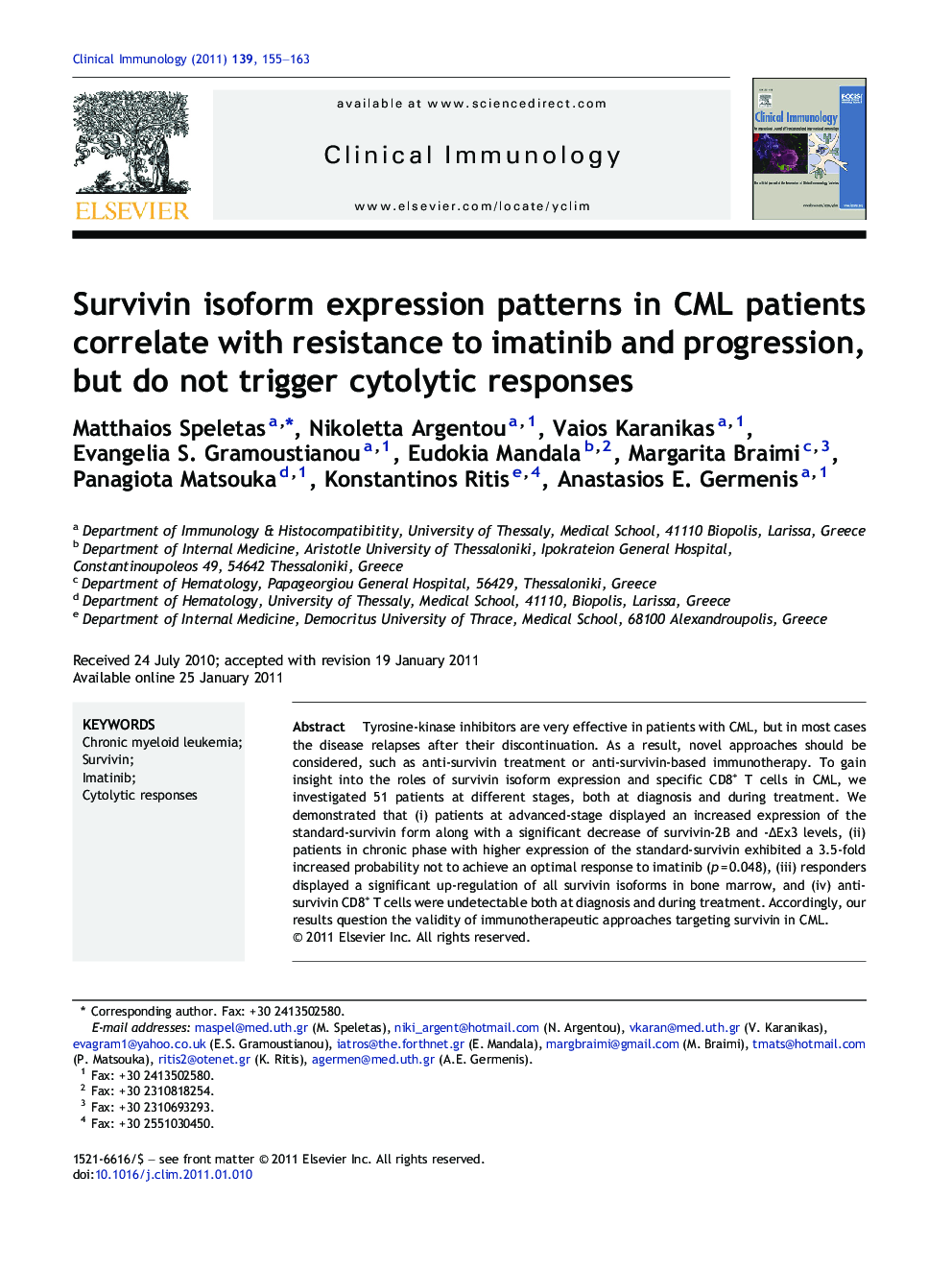| Article ID | Journal | Published Year | Pages | File Type |
|---|---|---|---|---|
| 3257255 | Clinical Immunology | 2011 | 9 Pages |
Tyrosine-kinase inhibitors are very effective in patients with CML, but in most cases the disease relapses after their discontinuation. As a result, novel approaches should be considered, such as anti-survivin treatment or anti-survivin-based immunotherapy. To gain insight into the roles of survivin isoform expression and specific CD8+ T cells in CML, we investigated 51 patients at different stages, both at diagnosis and during treatment. We demonstrated that (i) patients at advanced-stage displayed an increased expression of the standard-survivin form along with a significant decrease of survivin-2B and -ΔEx3 levels, (ii) patients in chronic phase with higher expression of the standard-survivin exhibited a 3.5-fold increased probability not to achieve an optimal response to imatinib (p = 0.048), (iii) responders displayed a significant up-regulation of all survivin isoforms in bone marrow, and (iv) anti-survivin CD8+ T cells were undetectable both at diagnosis and during treatment. Accordingly, our results question the validity of immunotherapeutic approaches targeting survivin in CML.
